
Dhiren Patel, PharmD, and Robert Busch, MD, present an overview of chronic kidney disease (CKD) and how it may impact a patient.

Dhiren Patel, PharmD, and Robert Busch, MD, present an overview of chronic kidney disease (CKD) and how it may impact a patient.
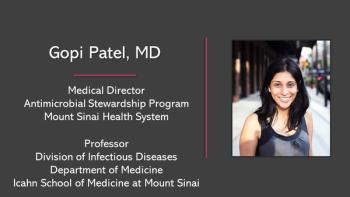
Clinicians must remember the point of vaccines was not to prevent infection, but to decrease severity of illness, says infectious disease specialist Gopi Patel, MD.

Gopi Patel, MD, emphasizes the importance of promoting vaccination and infection prevention measures among fellow clinicians, as well as patients, this season.

A panel of experts in vaccination efforts discuss the available influenza vaccines for a 50-year-old male patient with a heart disease.

John Russell, MD, FAAFP, presents the case of a 30-year-old pregnant woman in her 2nd trimester and reviews the appropriate vaccination strategies for this patient.

IDWeek chair Heather Yun, MD, observed that "primary care clinicians are out in front of all things," and that job is big and it's hard.

IDWeek 2023 chair Yun points to climate change and other human-driven devastation of the biosphere as the global threats that will cause disease at local levels.
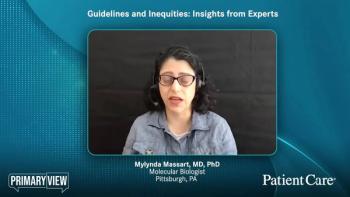
Candace Westgate, DO, MPH, FACOG, and Mylynda Massart, MD, PhD, introduce this series on early cancer detection, multi-cancer detection tests, and the role of primary care physicians (PCPs) in preventative care.
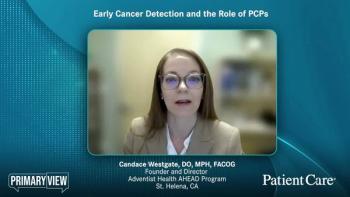
Candace Westgate, DO, MPH, FACOG, and Mylynda Massart, MD, PhD, introduce this series on early cancer detection, multi-cancer detection tests, and the role of primary care physicians (PCPs) in preventative care.

Carmen Kosicek, MSN, PMHNP-BC, shares considerations on the perception of mental health treatment among diverse cultures and ages within the United States.

Experts in psychiatry comment on the use of GABAA receptor modulators in the treatment of major depressive disorder (MDD), highlighting zuranolone.

Dr John Russell and Neil Skolnik comment on how to translate the advisory committee on immunization practices influenza vaccination recommendations to patients.

Dr Neil Skolnik reviews the role of real-world data to examine the efficacy of influenza vaccines and their impact on influenza related complications.
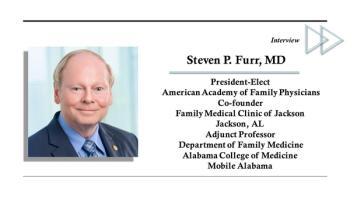
AAFP president-elect Steven Furr, MD, offers 3 thoughts on maximizing opportunities this year to give all necessary vaccines.

The monovalent, singe-shot COVID-19 vaccine simplifies what used to be a complicated conversation with patients and stocking the vaccine fridge, too, says Steven Furr, MD.

Furr on COVID-19 shot: The expectation that 90% of the US population would take this new vaccine that they'd never heard of was probably not practical.

Roger S. McIntyre, MD, FRCPC; and Carmen Kosicek, MSN, PMHNP-BC; review the mechanism of action of newer therapies in MDD treatment.

Roger S. McIntyre, MD, FRCPC; and Carmen Kosicek, MSN, PMHNP-BC, discuss provider and patient communication about the time to onset of action of major depressive disorder (MDD) treatments and when the patient can expect to see a difference.

A panel of experts in vaccination share their thoughts on the optimal timing and administration of an influenza vaccine for the general public.

Dr Wendy Wright reviews the differences between influenza strains and the rationale for the inclusion of multiple viral strains within flu vaccines.


The goal of a PM&R physician is to identify the source of function-limiting pain and then develop the best plan for each patient to return them to their lives.

Sandra Christensen, MSN, ARNP, gives her top strategies on patient selection for treatment with antiobesity medications and how to choose the right drugs for patients.
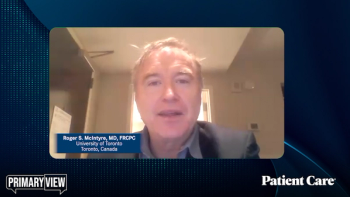
Roger S. McIntyre, MD, FRCPC, discusses the history of psychiatry and the conventional treatment and response times, leading into the current treatment armamentarium for treatment of major depressive disorder (MDD).

Carmen Kosicek, MSN, PMHNP-BC, reviews the definition of “rapid-acting” therapies as well as their role in treating major depressive disorder (MDD).

Amy Houtrow, MD, PhD, MPH, considers the impact of poverty on childhood disability and talks about opportunities to breach barriers to health care access.

Renowned pediatric rehabilitation physician Amy Houtrow, MD, PhD, MPH, highlights the scope of the specialty and its core objectives.

Neil Skolnik, MD, reviews the currently available vaccine technologies, highlighting their mechanisms of action and individual delivery methods.

A panel of experts in vaccination uptake strategies discuss their best practices for empowering their patients to obtain flu vaccines and discuss how to personalize these conversations.

How can a nearby physiatrist help your patient with hypertension? If comorbid arthritis has the person couchbound, a consult and some PT could go a long way.